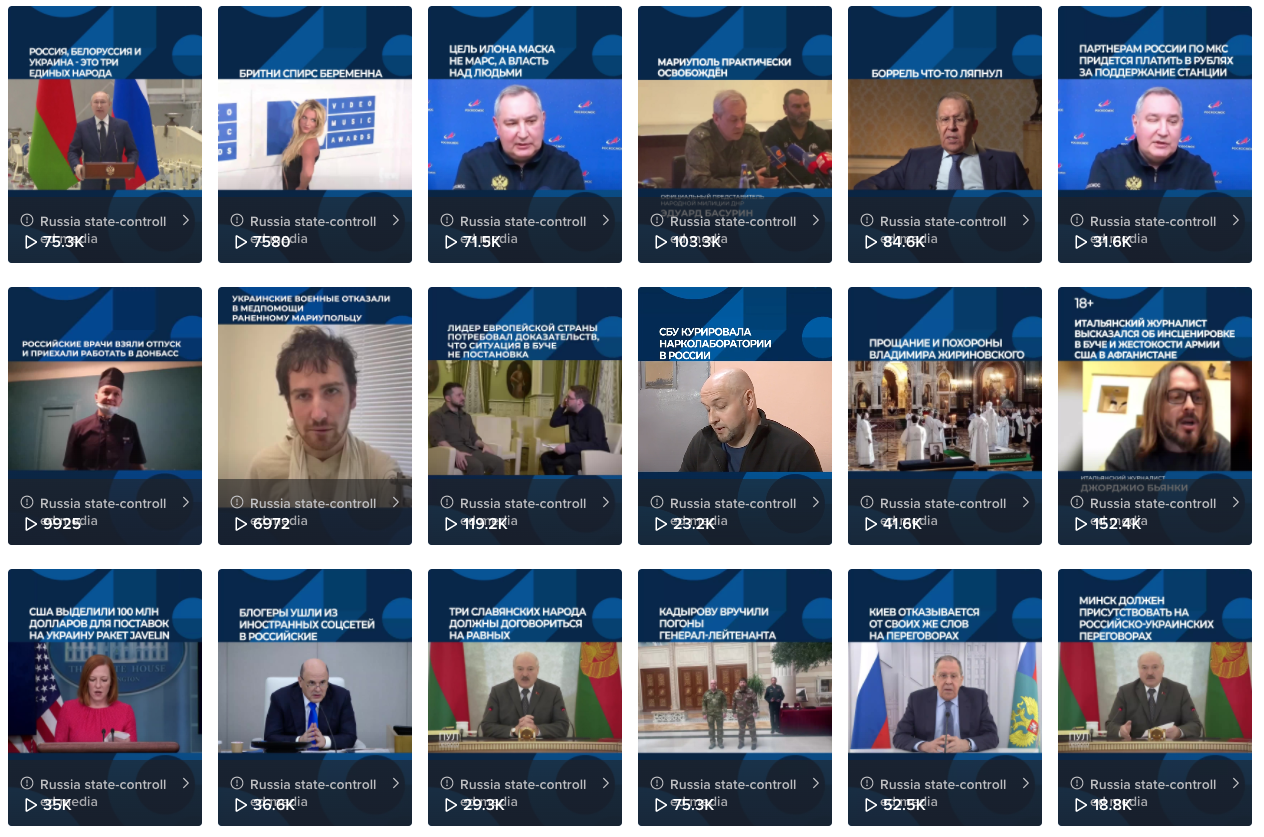The company doesn't seem to be effectively implementing its policies around the war, despite issuing an update Tuesday on its efforts to stem the flow of misinformation.
In response to a new law in Russia that makes it a crime to spread fake news, the social network cut off new content from Russia. Even though TikTok has been suspended in Russia, some prominent Russian state media accounts are still providing information.
In light of Russia's new fake news law, we have no choice but to suspend livestreaming and new content. The pause on Russian content from last month is still in place, according to TikTok.
TikTok has added labels to identify content from Russian state-controlled media accounts. There are gray boxes at the bottom of the screen that are not visible from account pages on the mobile app. Some of those accounts continue to post new content despite being labeled as Russia state-controlled media.

Russian state-owned media outlet is on TikTok.
Russian domestic news agency RIA Novosti still shares a daily mix of war and current events content despite the TikTok restrictions. In the last few days, there have been videos that accuse the Ukrainian military of denying treatment to a wounded civilian in the besieged city of Mariupol and another that suggests that the horrors discovered after Russia withdrew from the Kyiv suburb of Bucha were caused by the Ukrainian military.
Forbes reported on March 7 that RIA Novosti and the editor-in-chief of RT were still posting to TikTok. Both accounts are still active more than a month after TikTok stated that it was blocking new content from Russia.
The last TikTok post by Sputnik Video was on March 29th. Russia Today continued to post war propaganda to TikTok until March 28.
Between February and March, TikTok says it removed six networks and 204 accounts around the world for making coordinated efforts to sway public opinion about the war while obscuring their true origins. The company's fact checkers have added warnings that the content couldn't be verified to 5,600 videos related to the invasion of Ukraine and 41,191 videos about the war were removed for violating its misinformation policies. The Russian state media videos about the war were not accompanied by fact-checking.
It's not clear why TikTok wouldn't enforce the rules against accounts it has already linked to the Russian government, even if those accounts used basic workarounds. The company wouldn't say anything on the record.
TikTok's measures are relatively light compared to how other social networks are handling Russian state media. Russian state media outlets have been completely blocked by YouTube and Facebook and their ability to reach a wide audience has been hampered by the implementation of their own labels. State-backed media have been subject to similar measures by the social network in 2020.
Facebook and Instagram cut the reach of Russian state media
Twitter’s EU-only geoblocks of Russia Today off to a shaky start
YouTube is now blocking Russia state-affiliated media globally